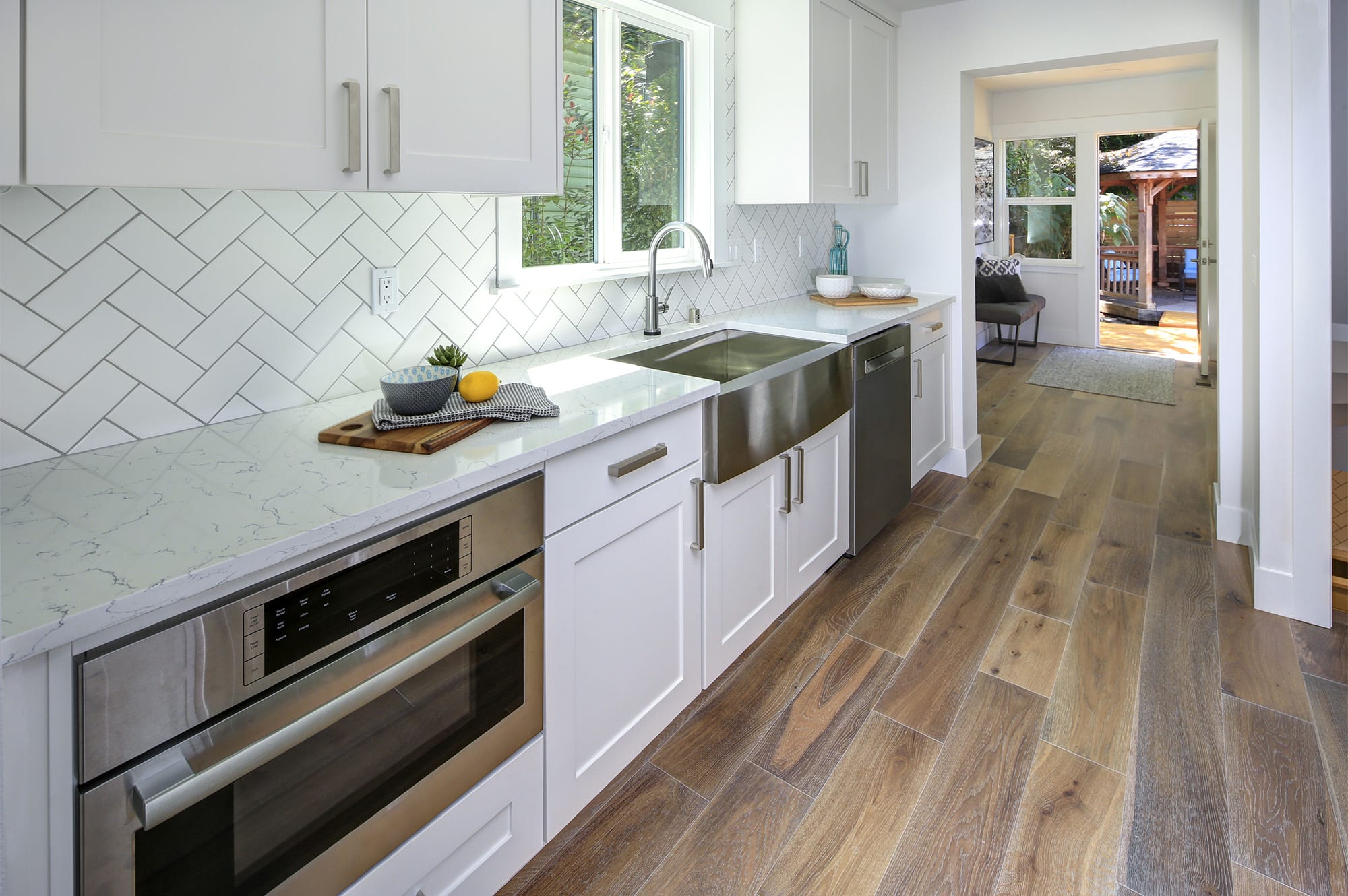Engineered hardwood flooring has become increasingly popular in recent years as a versatile and durable alternative to traditional solid hardwood flooring. With its unique construction and numerous benefits, engineered hardwood flooring offers homeowners a practical and stylish flooring solution for any space.
Dive into what this flooring is, engineered hardwood flooring pros and cons, and the advantages of engineered hardwood flooring.
What is engineered hardwood flooring?
Engineered hardwood flooring is a type of flooring composed of multiple layers of wood veneer glued together under heat and pressure. The top layer, known as the wear layer, is made of real hardwood veneer, while the core layers are typically made of plywood or high-density fiberboard (HDF).
This construction gives engineered hardwood flooring added stability and resistance to moisture, making it suitable for installation in areas where traditional solid hardwood may not be feasible, such as basements or bathrooms.
Enginneered hardwood flooring pros and cons
Like any flooring option, engineered hardwood flooring has its own set of pros and cons to consider before making a decision.
Advantages of engineered hardwood flooring
- Durability: Engineered hardwood flooring is highly durable and resistant to warping, cupping, and bowing, making it suitable for high-traffic areas.
- Versatility: Engineered hardwood flooring comes in a wide variety of wood species, finishes, and styles, allowing homeowners to achieve the look of traditional hardwood with added durability and stability.
- Moisture Resistance: Unlike traditional solid hardwood flooring, engineered hardwood is less susceptible to moisture damage, making it suitable for installation in areas with high humidity or moisture levels.
- Easy Installation: Engineered hardwood flooring is often designed with click-lock or tongue-and-groove systems, making it easy to install as a DIY project or with professional assistance.
Cons of engineered wood flooring
- Cost: Engineered hardwood flooring can be more expensive than other flooring options, such as laminate or vinyl, depending on the quality of materials and installation.
- Limited Refinishing: While engineered hardwood flooring can be sanded and refinished a few times, it may not be as durable as solid hardwood in terms of long-term refinishing options.
- Potential for Damage: While engineered hardwood flooring is resistant to moisture, it can still be damaged by excessive water exposure or sharp objects, requiring repairs or replacement.
Stop by Flooring Galaxy for engineered hardwood floors in St. Louis, MO
Engineered hardwood flooring is a versatile and durable flooring option that offers numerous benefits for homeowners. From its stability and resistance to moisture to its wide range of options and environmentally friendly credentials, engineered hardwood flooring provides a practical and stylish solution for any space.
If you're considering hardwood flooring in Brentwood and Arnold, MO, visit or call Flooring Galaxy. As a family-run, St. Louis-owned flooring retailer for over 10 years, we proudly serve the St. Louis, Arnold, Brentwood, Webster Groves, University City, and Kirkwood communities. Our team of flooring experts can help you find the perfect engineered hardwood flooring to enhance the beauty and functionality of your home. Contact us today to learn more and schedule a consultation.









